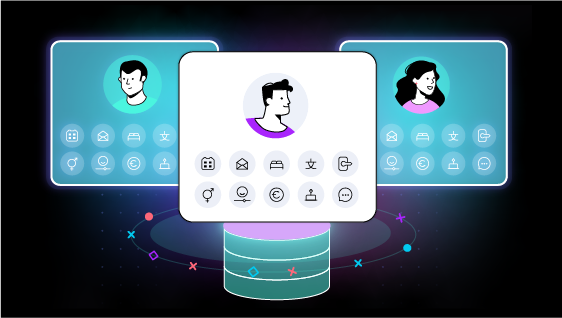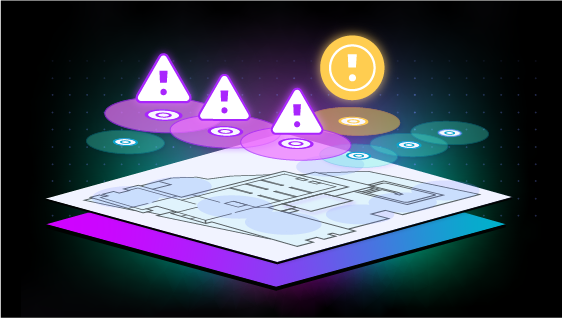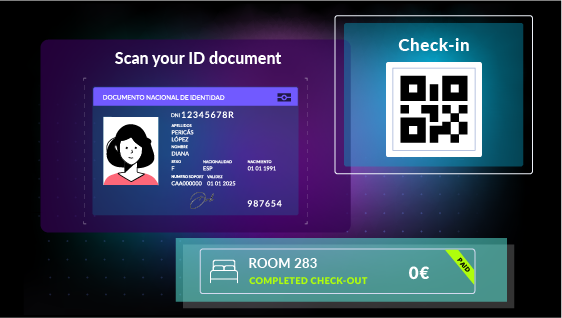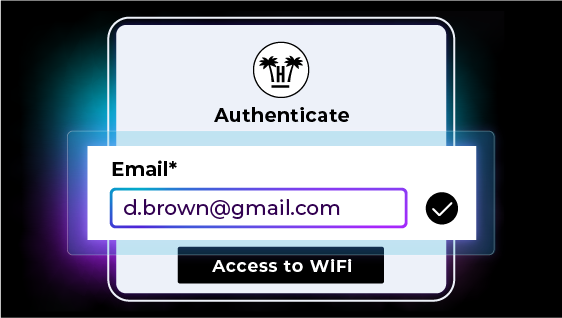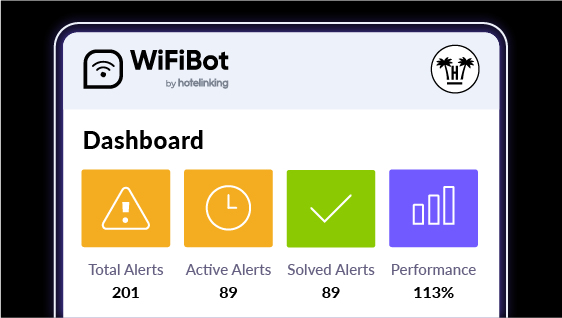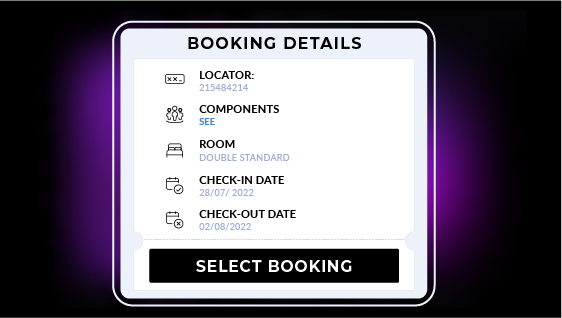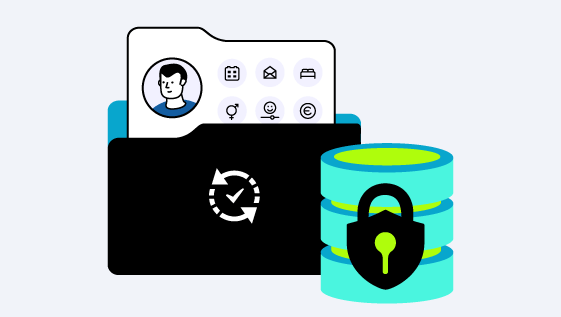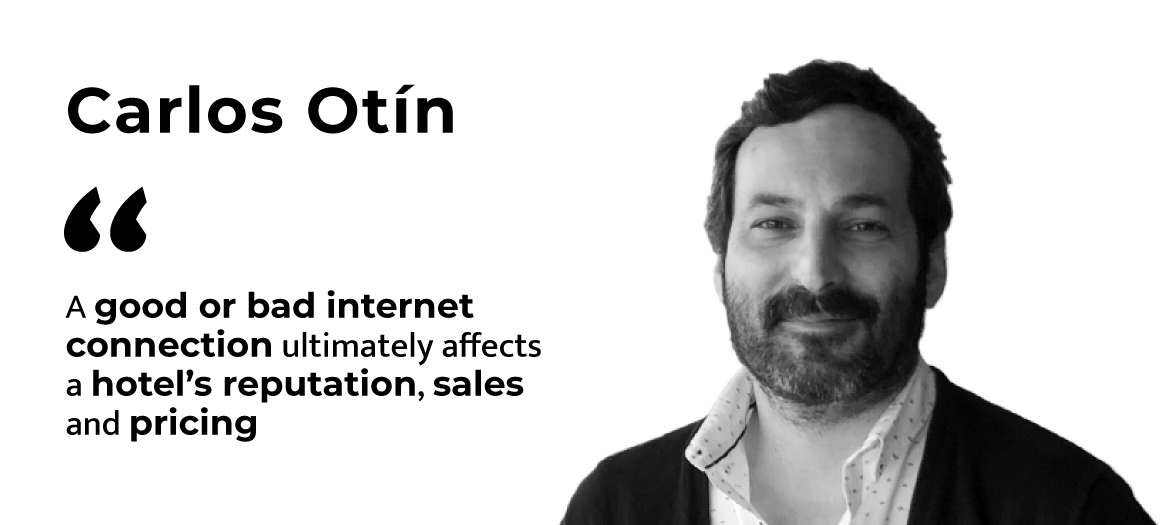
Carlos Otín (Hotelinking): “A good or bad internet connection ultimately affects a hotel’s reputation, sales and pricing.”
Carlos Otín is a Senior Network Engineer at Hotelinking, combining this with his job as a higher education course teacher.
Otín has a lot of experience in leading wireless network deployment projects for large infrastructures such as airports, hotels and shopping centres. He has also designed, configured, implemented and managed all types of communications networks and solutions. He has worked for many reputable companies including Futura International Airways, Avanzit Tecnología, Ezentis, Indra and Equipnou.
As well as leading the Hotelinking Operations team, he is currently a professor of Network Design and Management with MikroTik, and of Digital Transformation for Hotecma‘s Advanced Hotel Maintenance Management Course.
We asked him about his work as a trainer, what incorporating 5G means for the hotel industry and the challenges that hotel owners may face in terms of their Wi-Fi infrastructures.
You recently obtained the MikroTik Trainer certification. What does this recognition mean?
This certification is awarded by a company that develops routers and wireless ISP systems, supplying hardware and software for Internet connectivity. It also offers training courses to teach professionals about their technology. It has multiple certifications for topics related to the optimisation of traffic in a network, static routing, security, etc. This includes courses that train both students and professionals in the sector so that they can use this technology correctly.
How does Hotelinking stand out from the competition now that they hold this recognition?
It mainly shows that we have specific, thorough knowledge of MikroTik. It officially confirms that we are experts in this technology.
We can guarantee other companies that we have direct contact with the manufacturer. We can also claim that our employees are trained and prepared, capable of resolving any problems and doubts related to these devices and systems.
Why did you decide to get this certification from MikroTik?
From our experience, we have seen that the vast majority of hotels use this manufacturer and we therefore wanted to become specialised in this technology.
On the other hand, in the training world everything is based on the standard of another well-known brand that has very valuable certifications. However, this technology is not widely implemented, so this certification trains professionals in technology that is rarely used in tourist properties. This was a problem when hiring people, so I decided to complete the MikroTik certification, until I got the chance to become to be a trainer.
Ultimately, the goal was to satisfy our own needs by specialising in the technology most used by our customers, and to fill the gap between theory and practice.
Is it difficult to obtain this certificate?
It is complicated to a point, as you only get one chance per year to do it. Places are limited and training usually takes place in Riga, which is where the manufacturer is from.
In addition, to access this certification you must have all their previous certifications and they have to accept your cover letter sent to explain why you are interested.
It is also rare for them to grant certification to employees from companies like Hotelinking, as we are not official distributors of the brand.
Do you have any future projects related to you obtaining this certification?
In relation to filling this gap between theory and practice that I mentioned earlier, last year we launched training initiatives aimed at tutors and teachers in vocational training centres and we will continue with this. We would like to be a reference in this field.
At the same time, I am one of the teachers for Hotecma’s Advanced Hotel Maintenance Management Course. This course is aimed at hotel maintenance staff who are often responsible for managing and supervising the property’s networks.
Nowadays, technology is advancing so fast that hotel owners are implementing technological innovations, improvements and new systems in their properties, often without offering their employees adequate training or tools. Connectivity has become so important that maintenance staff have no choice but to learn from it.
This is why it was necessary to include understanding how a hotel runs at communications level in my digitisation and communications training course, regardless of the type of installation the property has. At the end of the day, we are trying to help technicians manage networks as well as possible. Regardless of how state-of-the-art a hotel’s equipment is, the human team must have the appropriate training to ensure that it can run smoothly.
Why is Wi-Fi is so important in a hotel?
Wi-Fi is a fundamental service for guests because they depend on communications for both leisure and remote working. A good or bad connection ultimately affects a hotel’s reputation, sales and pricing.
What are a hotel’s most common Wi-Fi infrastructure problems?
Many properties have systems that aren’t optimised or adapted to their needs. In addition, the maintenance and management solutions offered by most companies are often expensive, or they do not want to work with outdated equipment or take on complicated projects.
This leads to high costs in the long run, constant dependence on third parties and an inefficient Wi-Fi service that leaves the guest dissatisfied.
How can a hotel ensure that their network is optimal?
It is impossible to avoid network incidents entirely. There are many factors that influence performance and that is why it is very important to a system that measures and controls the network, to offer a frictionless connection.
Why do you recommend that hotels work with technology providers who are specialised in the sector?
Any technological device or any element that is incorporated into a hotel’s network has its own life. In other words, the environment is dynamic and ever-changing, so someone or something (a technology) must ensure that the entire system is functioning correctly. For this, a supplier must know the casuistry, challenges and problems faced by a hotel establishment, in order to provide the optimal solutions.
In this constantly-changing and often demanding environment, with new and better technologies constantly emerging, how is it possible to adapt to changes and follow the technological avant-garde for a hotel?
To be able to adapt to changes, it is vital to be very sure of what you wish to achieve and why. Infrastructure must ultimately be a means and not the end.
In my opinion, you shouldn’t embark on projects that are going to limit growth or make you dependent on integrators. It is a situation that I have seen many times in homes with turnkey projects: the costs begin to multiply because the complexity of managing and maintaining this type of equipment cannot be handled by a technical department or hotel maintenance staff.
As for being at the forefront of technology, sometimes this is complicated because it requires investment, and you have to be well advised. However, there is no point having the most cutting-edge technology if a minimum standard of safety cannot be guaranteed. I would like to place special emphasis on this because pushing network/installation security into the background is a fairly common error. It is also important to consider some type of system or procedure to comply with minimum security as part of the hotel’s investments in upgrades and technological improvements.
What advice would you give a property that is considering a technological update?
The first thing is to really think about what you need, and what is the best way to get there, considering the type of installation the hotel has and what elements can be taken advantage of.
It is very common to opt for the latest in technology without being very clear about what needs to be done or thinking that it will be necessary to do more than what is actually required. For example, there are hotels that have set up very expensive and very complex systems which weren’t actually necessary.
The deployment of 5G is advancing in Spain and in the rest of the world. What are the implications of this technology for the hotel sector?
The most significant change is that the implementation of this mobile network will multiply the connection speed: 5G offers a very high-speed mobile broadband, with speeds up to 1000 times faster than what we currently have. Customers with 5G will get used to the speed offered by their devices and the reliability of the network. This will force hotels to live up to these standards, as users will expect hotel internet to work as fast and reliably as in their own homes. Hotel owners will have to adapt their equipment to what their guests expect.
However, we are faced with a technology that allows much more, even digitising previously complex processes. A wide range of possibilities opens up in the world of the “Internet of Things” and real-time information: online check-in, smart door opening, lights, connected devices and more – all available to help guests at previously unimaginable speeds.
What’s the most important thing for properties to keep in mind?
Although the technology is now expensive, and depends on large players in the market, it is clear that one way or another hotels will have to use it. Firstly, to stand out from the competition, and then, to adapt to the expectations of guests who already use 5G on their personal devices.
Faced with this scenario, the first premise that hotels must consider is how to adapt the services available to these new market requirements and, above all, how to make the current installation work with these new technologies. For example, in the specific case of a guest who enters a hotel with their 5G connection and can stay connected without the need for any connection process and who is completely transparent to them.
Although hotels will most likely have to make major investments, there are many advantages that go beyond offering guests a top-quality service.
What do you like most about working at Hotelinking?
I enjoy having the freedom and possibility to create something that adds value to the guest and seeing that this improves their business. And of course, I love the working environment: feeling comfortable at work, surrounded by a great team of professionals.
